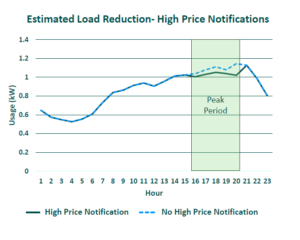PG&E and UD Present at 49th PLMA Conference
Sundry blogs by the UD Team spanning topics in energy, automation, iot, and AI.
Implementing an energy management gateway at each customer site presents significant advantages in terms of cost reduction and performance enhancement for flexible loads and devices, especially in environments characterized by Highly Dynamic Prices. While this functionality could be incorporated into existing devices, certain scenarios—like non-broadband customers or situations requiring meter data—require the deployment of new hardware. Furthermore, the vast majority of California’s current loads cannot directly respond to dynamic pricing, making price optimization for the hundreds of millions of legacy devices crucial.
An energy management gateway can address these challenges by processing price signals and optimizing device performance. The core objectives of this project are:
Price Integration with OpenADR 3.0
Cellular Data Connection (5G) Integration
Local Price Relaying via OpenADR 3.0
Functional Control of Connected Devices
PG&E Energy Expert App/Smart Speaker project was a success!!! Not only it met all its objectives, it also engaged customers with energy saving tips while helping them reduce load during high prices.


And, for your reading pleasure, here is the link to the final results.
In July 2022, the California Public Utilities Commission (CPUC) filed an Order Instituting Rulemaking (OIR) aimed at advancing demand flexibility through electric rates. This rulemaking initiative, largely inspired by the results of the successful UD/TeMix RATES project, led Southern California Edison (SCE) to award a contract to Universal Devices (UD) to demonstrate the optimization of off-the-shelf devices using dynamic pricing.
This project leverages a subscription-based model with hourly energy prices, designed to test the ability of smart devices to automatically shift electricity usage to times when energy is both less costly and has lower emissions. By aligning energy usage with optimal times, the program aims to improve the reliability of the power grid and offer cost savings to customers.
California is considering this pilot program as a tool to accelerate the transition to clean, carbon-free energy, enhance the power grid’s reliability, and lower the overall cost of electricity. This effort underscores the state’s commitment to sustainable energy solutions that benefit both consumers and the environment.
For those unable to attend in person, rest assured—the full presentation speaks volumes and captures invaluable insights!
SCE Smart Meter Project set out to:
Even though the project was halted halfway due to COVID-19, results are quite impressive:

Here’s the link to the published version of the final results.
PG&E plans to default residential customers to Time-of-Use (TOU) rates starting April 2021. The objective of this Demand Response Emerging Technology (DRET) demonstration project is to leverage residential Voice Assistants technology (such as Amazon Alexa, Google Home) to educate residential customers on energy usage and bill forecast, rates and Time-Of-Use automation/optimization, available IoT and connectivity, configuration, and notification on utility information.



The project will focus on the following:
The project will leverage the California Energy Commission’s (CEC) investment in the RATES (Retail Automated Trans active Energy System (RATES) pilot. The RATES pilot optimized connected devices based on real time prices received from the California Independent System Operator (CAISO) and enabled customers to interact with a smart speaker to gain insights into energy use. Modifications will be made to the RATES system to provide the requirements requested in this implementation (optimizing connected devices based on SCE residential TOU rates instead of real time prices).
This project was completed in 1Q 2022. Here’s the link to the final results.
When: June 12, 2019 3:30 PM PDT
Where: International OpenADR Symposium at PG&E Pacific Energy Center
Services for IoT and Transactive Energy (TE) will be required to enable a truly smart grid. Michel Kohanim discusses UD\’s existing research, framework, complementing products/ecosystem that have seamlessly integrated IoT technologies and Smart Grid standards including Transactive Energy. OpenADR is a perfect fit for bringing all these services under one standardized umbrella.
When: February 19, 2019
Where: CA Energy Commission
Universal Devices was featured in the CA Energy Commission’s EPIC Symposium both in the poster session, represented by Orly Hasidim, and in an in-depth panel discussion. The event took place in the Sacramento Convention Center and was attended by many including members of the legislator.
The keynote speech was given by Senator Henry Stern. Senator Stern is a known supporter of energy efficiency innovation and has provided a letter of support to Universal Devices for their BRIDGE project in 2018.